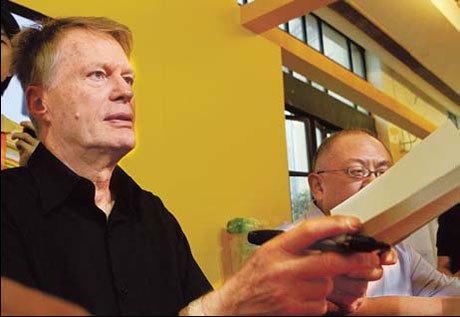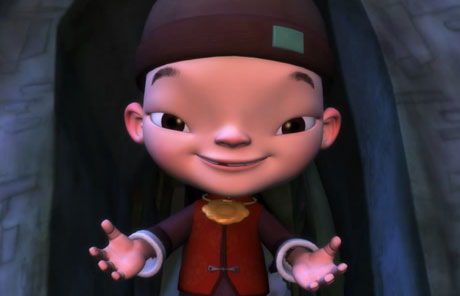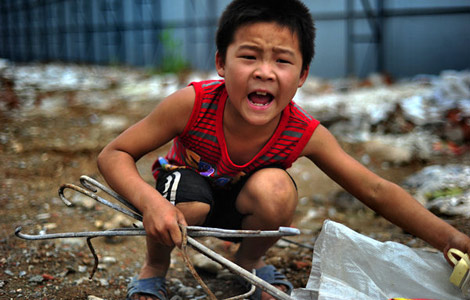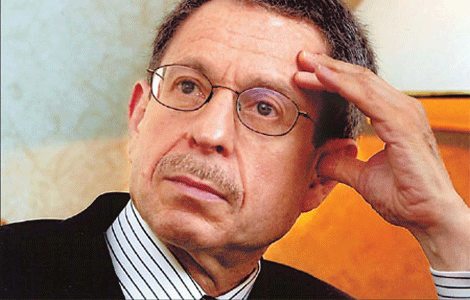Le Clezio continues a long journey
Updated: 2011-08-26 07:56
By Zhang Kun (China Daily)
|
|||||||||
|
Nobel Prize-winning author J.M.G. Le Clezio with Chinese readers at the just concluded Shanghai Book Fair. Yong Kai / for China Daily |
J.M.G. Le Clezio is no stranger to China. His latest visit to Shanghai Book Fair was his sixth time in the country.
It wasn't long ago that the few novels he had published in Chinese, such as The Interrogation, were relatively little read, but now his books are often prominently placed in the country's bookstores.
On Aug 17, Le Clezio signed 1,000 copies of his books at the Shanghai Book Fair within an hour, and later that day, he had a public dialogue with Chinese author Bi Feiyu to a full house of 300 readers. On Aug 18 he gave a speech named Writers in the City, to an audience of 2,000.
Le Clezio, 71, was born in Nice, France. He has published more than 40 novels, short stories, essays and travel diaries. He was awarded the Nobel Prize for Literature in 2008 as an "author of new departures, poetic adventure and sensual ecstasy, explorer of a humanity beyond and below the reigning civilization".
He has traveled broadly and has lived in Mexico with his wife for the past 12 years. He is currently writing a novel about the Mexican artist Frida Kahlo.
At the public meetings, Le Clezio spoke about how authors find their position in the city and manage to present the unique charm and character of cities.
About cross-cultural communications, he says: "Through translation I can read A Dream of the Red Mansions by China's Cao Xueqin, and of course more writers such as Ba Jin and Lao She."
"Wars are rarely about cultural differences. Sometimes war breaks out because of the fanaticism of a national leader, a desire to conquer, or economical imbalances, but literature has never been a reason for war.
"I'm not saying that all of us writers are peace makers. But writers' creations should be a contribution to humanity. Literature opens a door. Each metropolis in the world is an open space, where ideas and dreams from around the world are shared."
An ideal city of the future will inherit the acknowledged good qualities from the past, such as hospitality, tolerance and passion, and combine it with modernity, he says.
"I have lots of expectations for a city like that appearing in China," Le Clezio says.
In his upcoming autobiographical work, The African, Le Clezio talks about his relationship with his father, a doctor who worked in Africa. When he was 8, Le Clezio and his brother traveled to Africa with their mother, to join their father. During that voyage, Le Clezio wrote his first novel, A Long Journey.
Le Clezio studied Shakespeare and other English writers to please his father, though he says it was always a troubled relationship.
Xu Jun, who translated Le Clezio's works into Chinese, admits that when he first read Le Clezio's novel, Desert, he had difficulty understanding it.
"His earlier works were experimental and obscure, but later works, such as Wandering Star, are more narrative and easier to understand," says Peng Lun, an editor with 99 Readers' Culture Co Ltd, publisher of more than 10 works of Le Clezio in Chinese.












